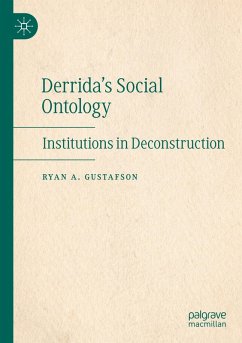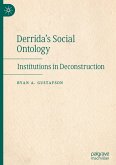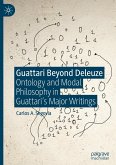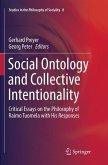Derrida's Social Ontology: Institutions in Deconstruction presents the first dedicated study of Jacques Derrida's philosophy of institutions. While previous studies of Derrida's thought have considered his engagement with individual institutions-from the university to literature, law, and psychoanalysis, among others-Derrida's Social Ontology offers the first attempt to reconstruct and defend the philosophical theory of institutions that underlies these engagements. In so doing, the book argues that the theme of "the institution" in Derrida's oeuvre offers the best throughline for understanding the substantively normative significance of deconstruction as a philosophical practice, arguing that Derrida is unique among so-called "postmodern" thinkers in providing an account of the relationship between the historically contingent character of institutions and the normative entitlements that such entities make possible. Specifically, the book shows how Derrida accounts for this relationship in a way that leaves room for a notion of "unconditional responsibility" for the social and political world to the extent that the latter is structured by perfectible institutions. In tracing the development of Derrida's account of this link between the historicity and normativity of institutional life-from his early writings on the historicity of the institution of philosophy, to his later critiques of practices of institutional cruelty like the death penalty-Derrida's Social Ontology not only offers readers a new framework for making sense of the normative commitments that defined this philosopher's writings, but will also establish the terms for putting his works into conversation with contemporary debates in social and political philosophy and critical theory more broadly.
Bitte wählen Sie Ihr Anliegen aus.
Rechnungen
Retourenschein anfordern
Bestellstatus
Storno








